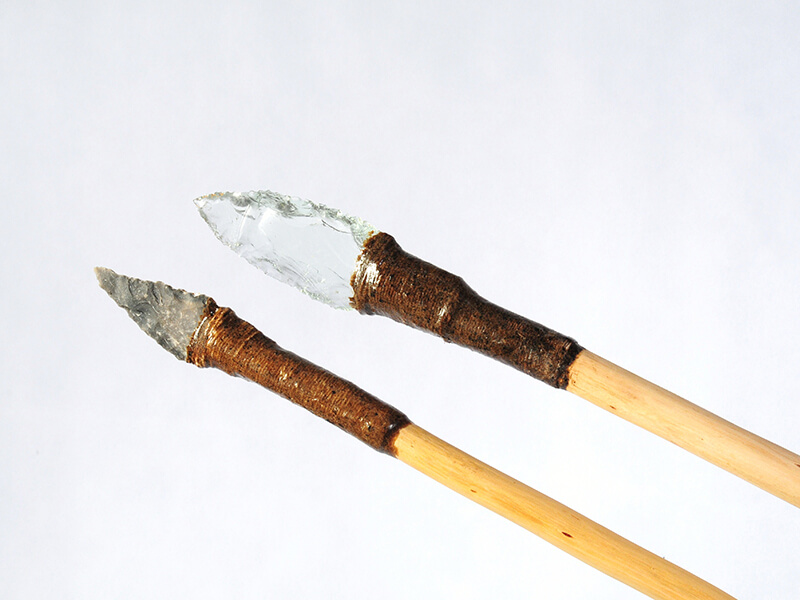
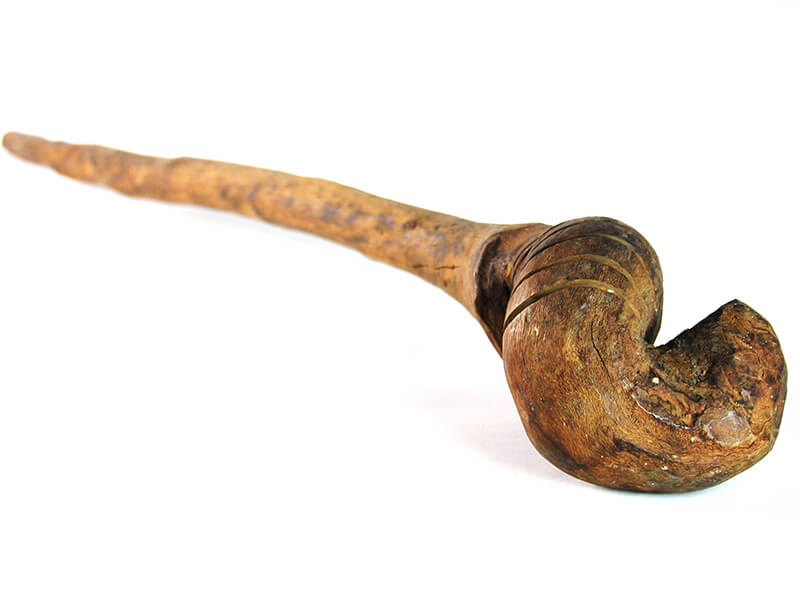
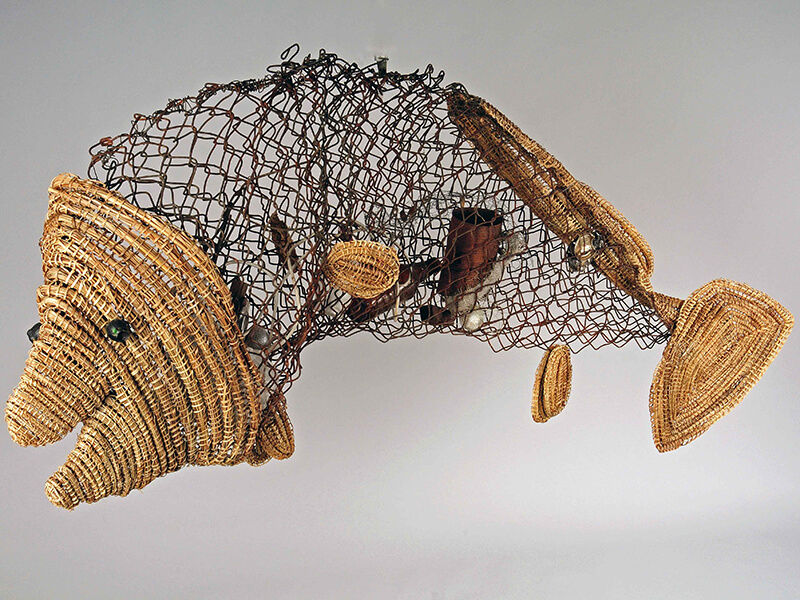
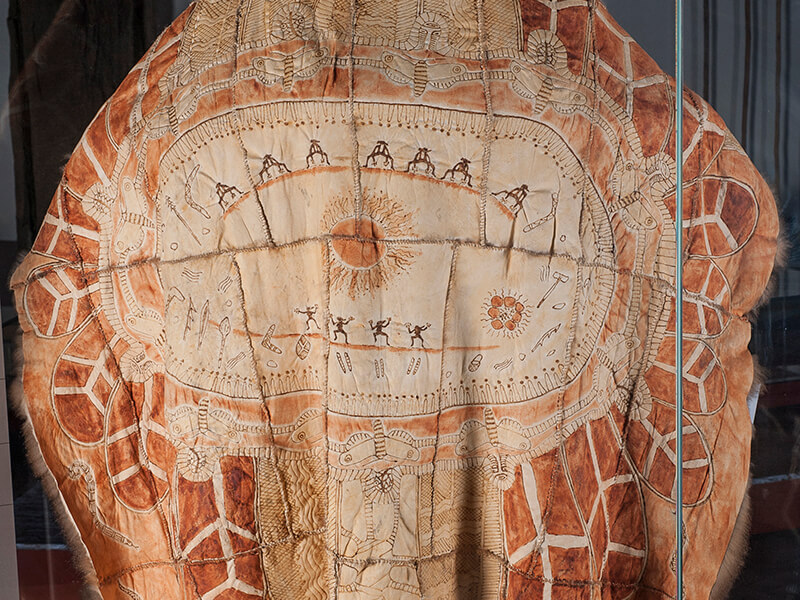
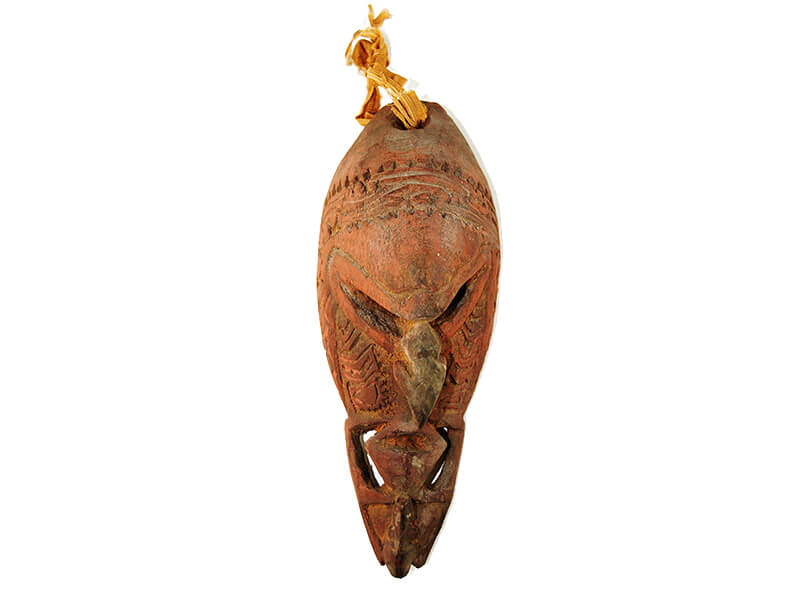
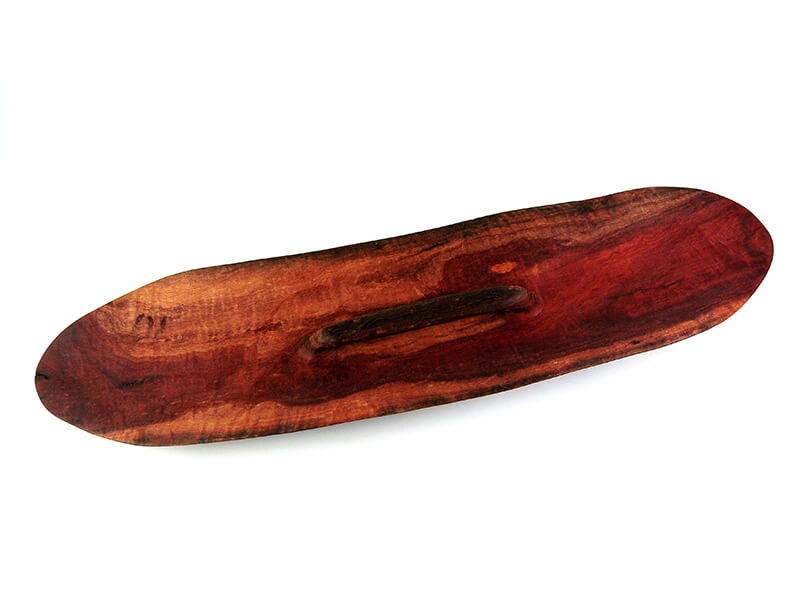
For centuries, the Albury-Wodonga area was known as Bungambrawatha, or 'Homeland', by the Wiradjuri people. It wasn't until 1838, when the Assistant Surveyor General decided that 'Albury' sounded more familiar to the British settlers' ears, that the name was changed. Wodonga, meaning 'bulrushes', still retains its Aboriginal name.
For centuries, the Albury-Wodonga area was known as Bungambrawatha, or 'Homeland', by the Wiradjuri people. It wasn't until 1838, when the Assistant Surveyor General decided that 'Albury' sounded more familiar to the British settlers' ears, that the name was changed. Wodonga, meaning 'bulrushes', still retains its Aboriginal name.
As a massive water system in a huge dry land, the Murray was and remains a powerful source of life. For this reason, the Wiradjuri were frequently joined by many other hunting groups from the surrounding mountains and flatlands, who would travel hundreds of kilometres to gather here, establishing an important place for meetings – a tradition that continues to this day. Speaking many different languages and dialects, they would perform corroboree, initiation and marriage ceremonies, share stories, exchange knowledge and skills, and hunt and eat along the banks and around the billabongs of the Murray. The AlburyCity Indigenous collection contains many traditional artefacts from the Wiradjuri region including bark paintings, weapons, stone tools and a canoe scar tree.
In 1972 Albury was chosen as a town for the Families Resettlement Scheme, which created new mainstream communities for disadvantaged and dispossessed Aboriginal people. The Albury Aboriginal community is thus a 'mixed mob', coming from many different regions and tribal backgrounds. In making their home in Albury, the diverse members of this community have reconnected with country and re-established Aboriginal influence and rich cultural traditions in the region. Hence, our Indigenous collection also reflects this 'mixed mob' approach and showcases artefacts from around the region in response to specific requests from our local Indigenous community.
In early 2000, the local Aboriginal community identified the need to 'pass on' their knowledge and skills to the next generation. Since then, workshops have been held in the Albury-Wodonga area involving local Aboriginal Elders with the aim of passing on to younger members of the community knowledge of traditional crafts such as stone tool making, construction of bark canoes, possum skin cloaks, basket and handcraft weaving.Local Aboriginal Elders wanted to to record and preserve their traditional knowledge for the next generation and they strongly believe that if this knowledge, which is unique to our region, is not recorded and passed on to their young people, it will be lost.
Artefacts collected are made from local materials and have been made using mostly traditional practices. Through a series of workshops, the Elders and the local community have produced unique contemporary artefacts that are now part of the AlburyCity Indigenous Collection. History has denied many Aboriginal people the right to their traditional knowledge, and there is now a push to reintroduce practices to the current as well as future generations.
Borrow from our collections of books, DVDs, e-books and magazines; browse the internet on our computers, access free wifi, attend exciting exhibitions and programs, and meet up with friends for a coffee at Retro Lane Café.